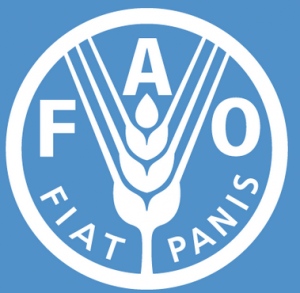FAO says it’s ready to help Ghana end food insecurity and malnutrition
 The Food and Agriculture Organisation (FAO) says it will continue to support the government of Ghana in its efforts to end food insecurity and malnutrition.
The Food and Agriculture Organisation (FAO) says it will continue to support the government of Ghana in its efforts to end food insecurity and malnutrition.
The FAO Representative to Ghana Dr. Abebe Haile Gabriel has said that the UN agency will assist Ghana in developing and implementing policies and strategies that will help to create and sustain enabling environments in creating incentives for key sectors and actors so they can make a dent on ending food insecurity and malnutrition,
Dr. Abebe observed that there is a need for inter-sectorial synergies and multi-stakeholders engagement to ensure efficient and effective mobilisation and utilization of resources towards achieving the food security and nutrition objectives of the country, according to information on the FAO’s website.
Dr. Abebe made this observation in Ghana while addressing participants at a multi stakeholder’s dialogue to foster greater inter-sectoral collaboration and coordination for achievement of Food Security and Nutrition, held under the FAO project Enhanced Capacities for Effective Mobilization and Use of Resources for Food Security and Nutrition.
Food insecurity and malnutrition has remained a serious challenge in developing regions, including Africa, despite numerous policy commitments and progresses achieved thus far.
For instance,a new Cost of Hunger in Africa: the Social and Economic Impact of Child Undernutrition on Ghana’s Long-Term Development (COHA) report found that the economy of Ghana is losing some GH¢4.6 billion, approximately $2.6 billion, or 6.4 per cent of GDP every year to the effects of child undernutrition.
The report shows large amounts of funds being lost through increased healthcare costs, additional burdens on the education system and lower productivity by Ghana’s workforce.
According to the report released in Accra August 2, 2016, the consequences of stunting (low height for age) are of particular concern.
The FAO therefore, believes that, the mobilisation of adequate resources and their efficient utilisation for achieving food security and nutrition has been a major policy concern in the context of the commitment by African leaders to allocate at least 10 per cent of their national budget to agriculture.
While allocation of increased public resources is absolutely necessary, it is also crucial to recognise that constructive engagement and creating the necessary enabling policy environment for private sector for enhanced investment in food security and nutrition related activities is key, it added.
It further explains that enhancing capacities of non-state actors so they can support the transformation agenda and enhance mutual accountability at the local or national level in light of Ghana’s decentralization serves as an anchor for realizing set targets.
The FAO project aims at increasing food security and nutrition in Malawi and Ghana through improving resource allocation to National Agricultural Investment Plans (NAIPs) by improving capacities of state and non-state actors to monitor public expenditures and to facilitate inclusive public private partnerships,
In recognition of the role of investment in contributing to poverty reduction and eliminating hunger, African states committed to a target of allocating at least 10 per cent of public expenditure to agriculture and rural development as part of the 2003 Maputo Declaration and the 2014 Malabo Declaration on Accelerated Agriculture Growth and Transformation, it said.
By Pamela Ofori-Boateng
Copyright © 2016 by Creative Imaginations Publicity
All rights reserved. This news item or any portion thereof may not be reproduced or used in any manner whatsoever without the express written permission of the publisher except for the use of brief quotations in reviews.
